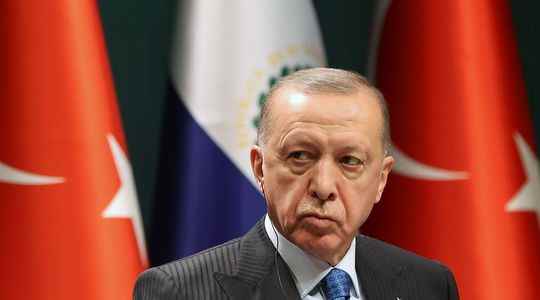Nose in his papers, Emre takes little advantage of the superb view from his office over the Bosphorus Strait and its perpetual ballet of merchant ships. In this mild month of October in Istanbul, this entrepreneur specializing in logistics does not pick up his Excel tables and his columns of figures. This morning, he raised the salaries of his teams – by 19% – for the… fourth time this year. “Every two months, we have to review the salaries so that our employees can do their shopping or put gas in their car, insists this forty-something with small round glasses. First 45%, then 16%, then 25% … We have no other choice for them to survive this chaos.”
Turkey in a downward spiral
If Europe has suffered a wave of inflation since the start of the war in Ukraine, Turkey is facing a veritable tsunami. Officially, the rise in prices is 83% in one year, but according to the independent group Enag, it would actually reach 186%. At the same time, the Turkish lira lost more than half of its value. “From our point of view, the situation in Turkey is mind-blowing, testifies a French expatriate working in the energy sector. The Turks are caught in a downward spiral, but they tell us that they are used to crises. If France went through a tenth of their problems, it would be revolution!” Since the beginning of the year, 4 million Turks have plunged below the poverty line.
In this whirlwind, Turkish business leaders are doomed to perform miracles: they must juggle rising manufacturing costs, energy, wages, falling exports to a slowing Europe… and some extravagant government decisions. “The private sector has learned, since the 1990s, to show resilience, smiles Bahadir Kaleagasi, president of the Institut du Bosphore, a Franco-Turkish think tank. It manages to exist and organize itself independently of the powers public, and often in spite of them. But also in spite of the political instability which reigns inside and outside Turkey.”
Yet Erdogan has long been backed by the Turkish business community. From 2002 to 2012, his policy with liberal overtones made Turkish growth flirt with 10% in certain years and the average purchasing power tripled in ten years. But since then GDP per capita has plummeted from $12,600 to $7,500, according to the World Bank. “Frankly, with a government that runs its economy according to the principles of the Koran, what else could one expect?” whispers an entrepreneur between two doors. An economic rout that could cost the almighty president dearly, a few months before the June 2023 elections: his popularity rating does not exceed 33%.
Concern engulfs business circles close to Erdogan
Describing himself as an economist, thanks to a year of study at university, Erdogan remains convinced of the virtues of inflation and the lowest possible interest rates, contrary to all classical economic theory. Today, even business circles close to his party, the AKP, are sounding the alarm and calling for “stability” at all costs.
A waste of time: the minimum wage, already increased to 300 euros in July, should be set at more than 400 euros, or even 500 euros, in December. “It’s quite chaotic, regrets Bahadir Kaleagasi. In the orbit of the elections, Turkey always goes through, regardless of the party in power, periods of considerable populism and clientelism, with a sharp increase in public spending.” But these irrational decisions will end after the elections, “no matter who wins”, he wants to believe.
For the first time, next June, Erdogan is expected to face a coalition of six opposition parties, ranging from the left to the extreme right. At the time of voting, Emre will slip into the ballot box a ballot for the Good Party, a nationalist movement. “Certainly, one must always be wary with the nationalists, whispers the entrepreneur. But at least their program is good for business.” For Turkey, that remains to be seen.
